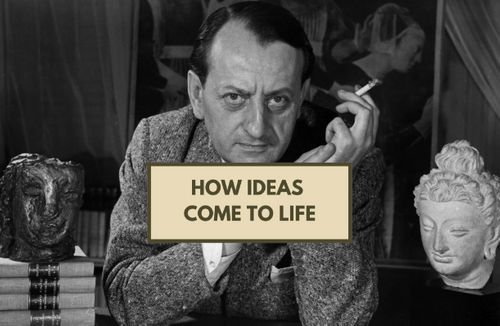Andre Malraux Becomes The Übermensch
Nov 05, 2022 · 2 mins read
0
Share

Introduction. Nietzsche inspired a young Andre Malraux to live a life of adventure, philosophical integrity, and daring creativity. Malraux went on to become a war hero, a literary rockstar, and France's first Culture Minister. Here's how Nietzsche inspired him to greatness👇
Save
Share
Andre Malraux's first wife wrote that her very first conversations with him were about "Holderlin, Novalis, Nietzsche, Dostoievskii and Tolstoi." Malraux was particularly "haunted" by Nietzsche and aspired to the Nietzschean ideal of a thoughtful, risk-taking man of action.
Save
Share
In Malraux's last novel the narrator's father gives a speech titled The Philosophy of Action. In a paper called The Presence of Nietzsche in Malraux, Batchelor writes that Malraux characters "carry their reflections upon energy & virility into the field of action and adventure."
Save
Share
Batchelor: "Malraux writes inspired by the head of a young man in the museum of the Acropolis which, he claims, was the first piece of sculpture to demonstrate man’s liberation from death and the gods." Eclipsing the gods is perhaps the defining theme of Nietzsche's work.
Save
Share
Both Malraux and Nietzsche loved the ancient Greeks. Nietzsche wrote The Birth Of Tragedy to celebrate the spirit of Dionysus, while Marlaux wrote: "the decisive discovery of Greece was the questioning of the universe, the right conquered by man to oppose the gods."
Save
Share
In Marlaux's novel Man's Fate, a Chinese sage makes a very Nietzschean observation. He says: "The chimerical illness, of which the will to power is only the intellectual justification, is the will of the deity; every man dreams of being God." Nietzsche would say: No nobler dream.
Save
Share
Batchelor writes: "Malraux epitomizes the Nietzschean philosophy of action probably more emphatically than any other writer since he combines the basic, antithetical aspects of man (action and contemplation) to an unusually harmonious degree."
Save
Share
Marlaux puts great emphasis on the importance of "action in the individual’s life." He doesn't like "Flaubert and Henry James" because they lived flaccid lives and therefore made "paralytic art." "Sophocles, Dante, Bacon and Cervantes" fought wars and so could make great art.
Save
Share
Marlaux went on to win battles in World War 2, was one of the most famous adventurers in the world, and made lasting contributions as the first head of France's Cultural Ministry. Marlaux's life shows the power of sincerely accepting a worldview and run with it.
Save
Share
Be inspired by the ideas that made Marlaux great - here's Nietzsche on the meaning of greatness, the difference between masculine and feminine genius, and how to become a better story-teller.
Save
Share
0